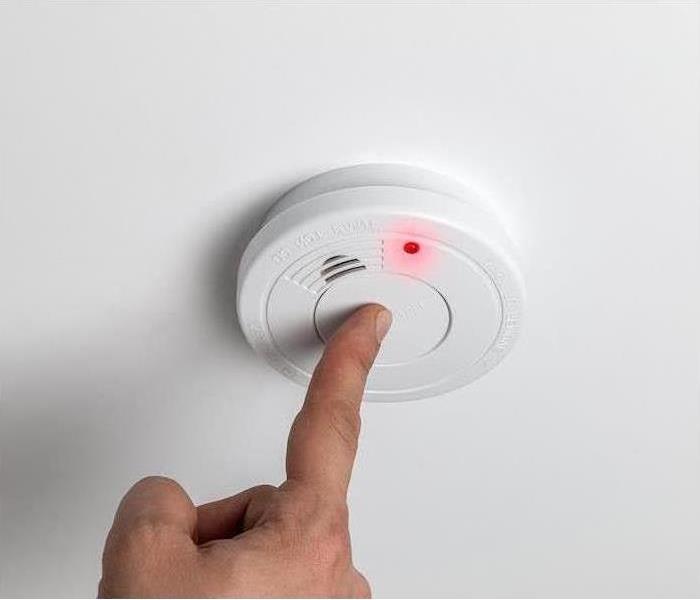Smoke Alarms
6/5/2024 (Permalink)
Smoke alarms are an important part of any home fire escape plan. Here are some tips from the National Fire Protection Association to help keep your family safe:
- Install smoke alarms in every bedroom. They should also be outside each sleeping area and on every level of the home. Also install alarms in the basement. Larger homes might need extra smoke alarms.
- It’s best to use interconnected smoke alarms, so when one sounds the entire system sounds.
- Test all smoke alarms at least once a month. Press the test button to be sure the alarm is working.
- Current alarms on the market use different types of technology including multi-sensing, which could include smoke and carbon monoxide combined.
- Today’s smoke alarms will be more technologically advanced to respond to a multitude of fire conditions, yet mitigate false alarms.
- A smoke alarm should be on the ceiling or high on a wall. Keep smoke alarms away from the kitchen to reduce false alarms. They should be at least 10 feet from the stove.
- There are special type of smoke alarms that have strobe lights and bed shakers for people who are hard-of-hearing or deaf.
- Smoke alarms should be replaced on average when they are 10 years old.

 24/7 Emergency Service
24/7 Emergency Service
